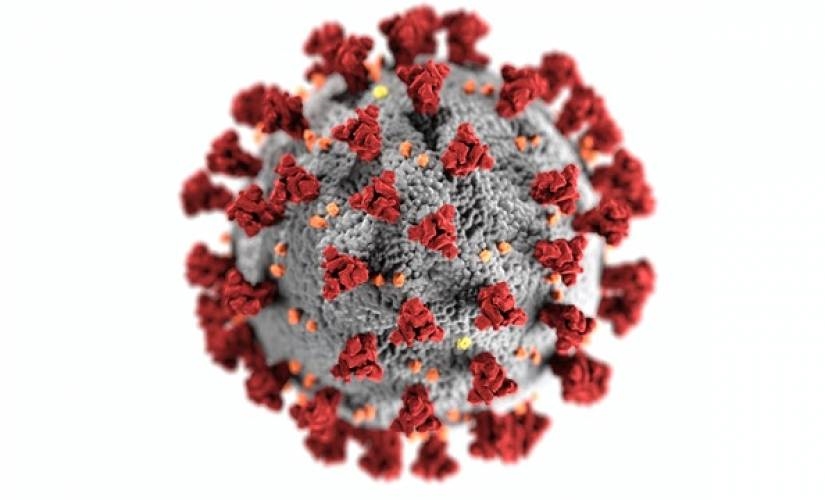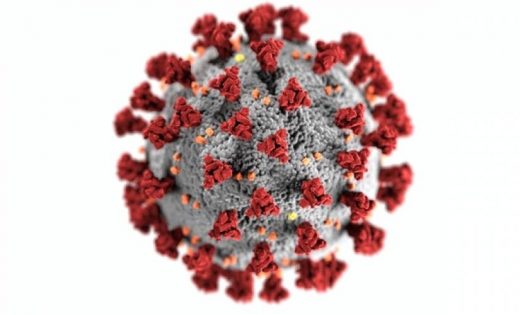COVID-19 Vaccine Logistics Will Require Unprecedented Global Cooperation
COVID-19 Vaccine Logistics Will Require Unprecedented Global Cooperation

We are all looking forward to the day when we have a vaccine for the COVID-19 coronavirus. It cannot come soon enough for any of us — we want this nightmare to be over. But the COVID-19 logistics will require unprecedented global cooperation and must be supported by a massive IT infrastructure and public trust.
COVID-19 Vaccine Logistics Will Require Unprecedented Global Cooperation Supported by a Massive IT Infrastructure and Public Trust
By Donald Jones, John Gentry, and Stan Kachnowski (bios are included at the bottom of this piece).
The race for COVID-19 vaccines is proceeding at a blistering pace. As of mid-September, 40 vaccines were in clinical trials on humans and at least 92 were in the preclinical phase. The goal is to produce one or more by next year. However, safe and effective vaccines are just the beginning. Medical researchers estimate that about 70 percent of the world’s population — or 5.6 billion people — will need to be inoculated to establish herd immunity, which is required to end the pandemic.
The logistical challenges involved in a vaccination manufacturing, distribution, and administration effort of this magnitude mean that even when we have vaccines, it could take several years before we can resume normal daily life. It’s not just the quantities of vaccines that will be required; the various characteristics of vaccines will make an effort even more challenging:
Vaccines are perishable. When not stored or transported properly, vaccines stop working. Therefore, they must be stored at the correct temperature range at all times, from their production right up until the time they are used.
Some vaccines require two doses to achieve complete immunity. This means that to be fully protected, recipients will need to receive the two doses on two separate occasions.
For some vaccines, immunity isn’t permanent. When immunity begins to wear off, a booster dose is needed to bring immunity levels back up.
For some viruses, such as influenza, a new vaccine must be developed each year as the virus mutates. It’s possible that the same will be true of the coronavirus.
Vaccines must be administered by a trained professional. Every vaccine has a recommended administration protocol, and if recommendations are not followed, the vaccine might not provide complete immunity or might even have adverse effects.
The lack of trust in the efficacy and safety of the vaccine by the general public. A widespread misinformation campaign about the vaccine’s effectiveness and safety could hinder the acceptance, globally, of the world population in getting the vaccine.
The logistical implications of matching billions of people in vastly different environments — from Jakarta to Manhattan to sub-Saharan Africa — with multiple types of vaccines are profound. For example, while a double-dose vaccine might be suitable for administration in a physician’s office in a U.S., European, or Asian capital, a single-dose vaccine likely would be better in rural or remote areas or special situations such as refugee camps.
There is also the question of equity. If the distribution is left to market forces, wealthy countries will get vaccines first by funding vaccine development efforts and pre-purchasing and paying a premium for vaccines. This has already happened. The United States, Europe, and the United Kingdom have spent billions of dollars on advance orders of vaccines being developed and tested.
In an attempt to ensure that poorer countries have access to vaccines, the World Health Organization (WHO), vaccine alliance Gavi, and The Coalition for Epidemic Preparedness Innovations (CEPI) have set up an accelerator. The accelerator for the COVID-19 Vaccines Global Access (COVAX) Facility is for the development, purchase, and distribution of vaccines more equitably.
COVAX will control access across high-income countries, low-income countries, and for humanitarian situations and outbreaks that are out of control.
COVAX has engaged more than 170 countries in non-binding discussions, including about 80 potentially self-financing countries. Binding funding commitments were due by September 18th. In early September, the Trump Administration opted out and the EU opted in. Previously, the Gates Foundation pledged $ 1.6 billion to Gavi and an additional $ 50 million to COVAX.
While there are a lot of things, we don’t know about the COVID-19 vaccination effort. According to Donald Jones, a globally recognized expert in digital medicine, one thing is clear: if we are to efficiently execute the monumental task of distributing and administering COVID-19 vaccines to billions of people, we’ll need an IT infrastructure.
The infrastructure must support collaboration and cooperation between governments, pharmaceutical companies and their suppliers and partners. The infrastructure must support the technology companies, research labs, local public health agencies, NGOs, hospitals, medical clinics, and physicians.
“In addition, an IT infrastructure capable of supporting a global vaccine distribution effort will need to scale up very quickly once vaccines become available,” said Jones.
According to John Gentry, an advisor to large companies migrating applications to the cloud, another vital IT support need is for logistics. These logistics include inventory and supply chain management software and systems for collecting, sharing, and analyzing the data required to plan, execute, and monitor vaccine distribution.
The nature of this effort — a health-related challenge requiring global public and private sector cooperation — will require that all of this is accomplished while protecting patient privacy. All privacy must be up to national and international standards such as HIPAA, GDPR, and CCPA, as well as safeguarding private sector intellectual property.
“The global vaccine distribution IT challenge is all about data, security, speed, and flexibility,” said Gentry. “Key players will need to leverage their existing private data centers and clouds and tap into public clouds to safely share data and collaborate. They will also need the ability to scale up and down as demand for IT resources fluctuates. The ability to monitor, manage, and optimize hybrid IT architectures will be essential.”
Gentry adds, “The pandemic has already proven to be the ultimate stress for health care IT infrastructures in both the private and public sectors. The vaccine distribution effort will raise the stakes even more.”
Stan Kachnowski observes, “In essence, COVID-19 couldn’t have come at a more perfect time in human history because of our collective ability for the global medical technology system to rapidly respond using digital tools that are more complex. Our evolved technologies have enabled scientists to compress the effective vaccine cycle from 5 years to a few months.
However, now we have an entirely new layer of distrust that’s coming from an extraordinary phenomenon that no one could have foreseen 10 to 20 years ago. A big threat to the effectiveness of combating the disease is the massive amount of disinformation, misinformation around the efficacy and the safety of vaccinations.
The lack of trust in the scientific community could negatively impact the vaccines even after approval and distribution.
Bios
Donald Jones is a globally recognized leader in digital medicine, digital therapies, technology-enabled health services, and virtual clinic business models. Jones works across a spectrum of health care, pharmaceutical, medical device, wearable, smart apparel, material science, and health care AI companies.
John Gentry is a 20-year tech veteran and CTO of Virtana, the leader in optimizing cloud computing for Global 2000 companies. Gentry advises pharmaceutical and health care organizations in the private and public sectors on how to migrate applications to the cloud and optimize and manage hybrid IT architectures.
Director Digital Health Program Columbia Business School, Chair HITLAB 30 years of experience in digital health, biomedical informatics, teaching, research and practice. His expertise is in the digital transformation and the digitization of information tools and technology needed to eradicate disease from human populations.
Image Credit: CDC; Pexels
The post COVID-19 Vaccine Logistics Will Require Unprecedented Global Cooperation appeared first on ReadWrite.
(49)


